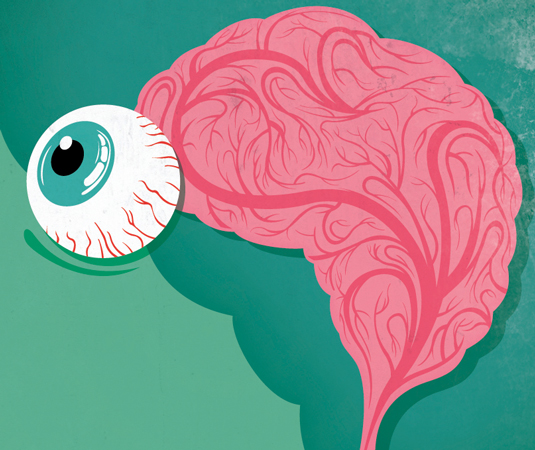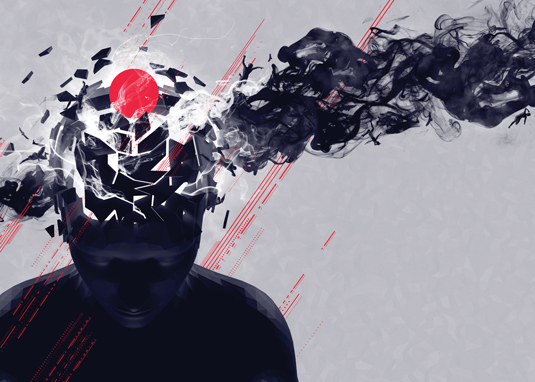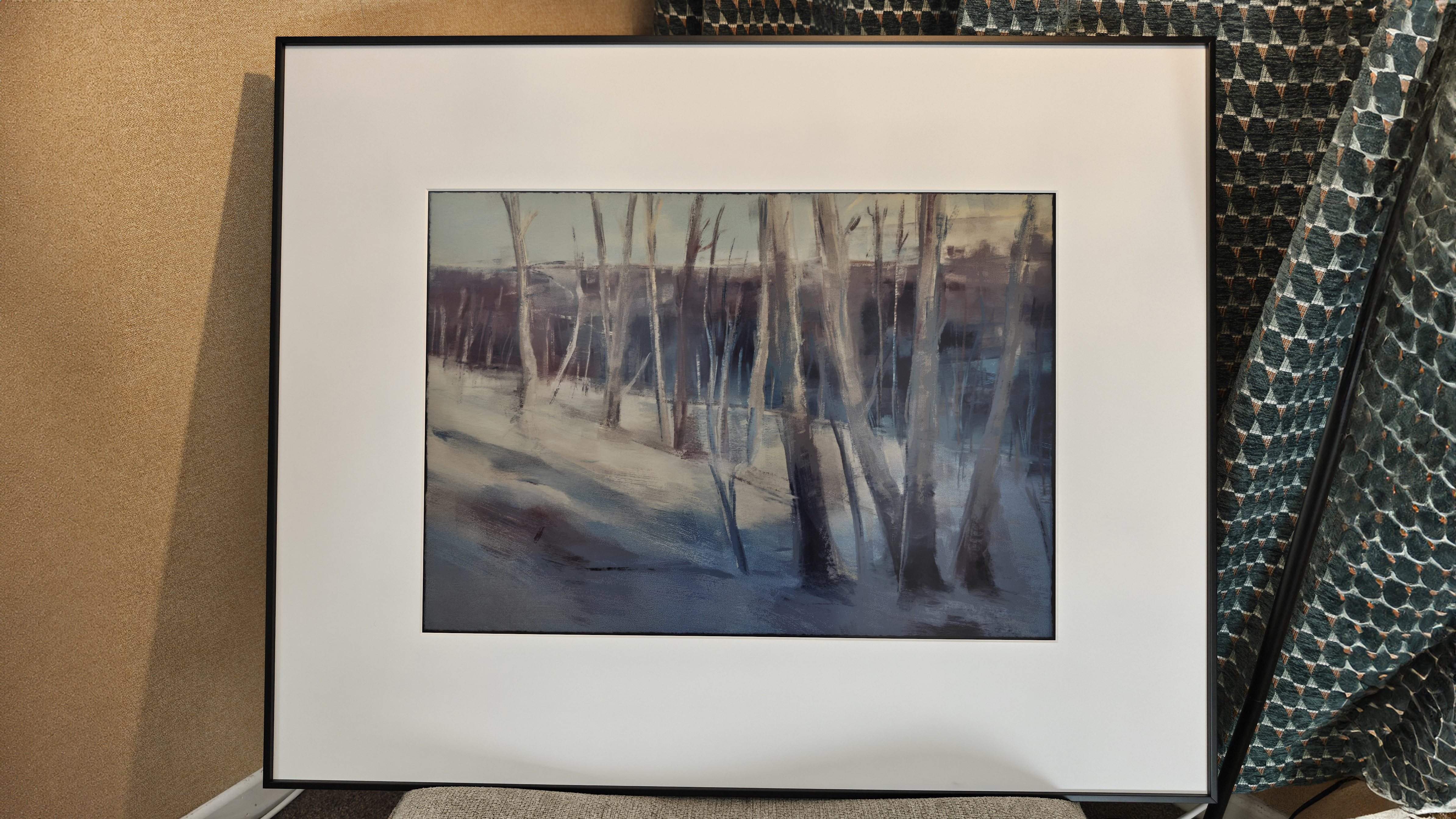Unlock your inner creative genius in 5 simple steps
Digital Surgeons' Pete Sena walks through 5 easy steps to get your creative juices flowing.
Creativity is talked about, coveted, admired, and mocked. Ask a dozen creatives how they tap into their most innovative selves and chances are you'll hear a dozen different answers. That's because, generally speaking, creativity does not start with a quixotic muse, a singular gene, or some defining moment of clarity. It starts with process.
Now as an entrepreneur and creative director, it's my job to shepherd and nurture my team's creativity (as well as my own, for that matter) on a daily basis, if I'm to do my job with any degree of success.
So I've been thinking a lot lately about how I might implement a clear, digestible process that speaks to designers, technologists, and strategists alike. A framework for creativity, if you will. When followed, this thought process serves as a key to unlocking the creative genius within. Care to give it a try?
How the brain process creativity
As with addressing any problem, a bit of scientific observation is usually a good starting point. In this case, it's the brain, and how it's wired to process creativity.
Some people are left-brainers, some people work from the right. Now while many regard the creatives of the world as falling into the left cap, true creativity – in its purest form– melds forces from both of the brain's hemispheres.

This doesn't mean that history's greatest thinkers were gifted with specially wired brains. Or that the most brilliant among us today possess a unique set of mental capabilities inaccessible to the rest of us.
In fact, according to Dr. R. Keith Sawyer, associate professor of education and of psychology at Washington University in St. Louis, "No one is born highly creative."
Daily design news, reviews, how-tos and more, as picked by the editors.
It's not magic
"Psychologists studying creativity have discovered that it is based on cognitive processes we all share. Creativity is not the result of some magic brain region that some people have and others don't."
And so those who primarily use one half of their brain are by no means more capable of creativity than individuals who use the other. In other words, creativity isn't limited to left-leaning designers, artists, and architects alone. Ideas and inspiration can (and should) come from everyone, regardless of their background.

Okay, so we now know that creativity isn't some inborn gift or special ability reserved for the artistically inclined – that buried underneath the countless routines and to-do lists, lies a creative genius within each of us. Let's turn, then, to using this hidden virtuoso for everyday problem solving.
Whether looking for creative solutions to personal or professional challenges, all that's needed is a methodical framework. Follow these steps and you'll find creativity can be achieved in just about any context...
01. Insights: defining the problem
First, start by defining the problem at hand. Keep reframing the problem until it's clear to you and the others working on it. The problem and the path to resolution should be rooted in research and user-validation.
I try to always pair the problem I'm trying to solve with a combination of cultural and behavioural insights that put my ideas at the center of the needs and wants of the user. This requires a keen eye, patience, and repetition. Remember, many of the greatest designs to date were born through observation and iteration.
02. Saturation: getting in the mindset
Immerse yourself in whatever information is available, then dig deeper for more. This exploratory phase, while dull and not at all sexy, is entirely necessary. Not every turn reveals novel, flashy ideas. But it's important to water your theories in ample information in order for one to take root.
03. Incubation: letting it all sink in
You've done your research; endless hours of inquiries and information acquisition. Now let it all marinate. Some call this "thinking aside", as you're essentially putting your brain on the shelf and stepping away. By turning off your mind this way, you're allowing the information to set in and that subsequent spark of creativity the necessary room to ignite.
04. Illumination: the notable 'aha!' moment
We know this as the "Aha!" moment that hits when we least expect it. Whether in the shower or in line at the grocery store, it's the unforeseen moment during which that thousand watt light bulb suddenly turns on and the solution seems clear.
05. Verification: remove any bias
Once you've hooked that brilliant idea, it's time to reel it in and conduct a close-up examination. How might the concept be flawed? In what areas could it serve to be improved?
Many look to sidestep this stage when prototyping an idea, whether due to personal bias (we're all guilty of being blinded at times by what we think are our own "perfect" notions) or fear of finding defects. But look at it this way, if you get it right in the first go ‘round, chances are you're sitting on a broken or, in some way, incomplete idea.
Aim to fail
Failure sucks. Failure means defeat. Failure is not an option. Failure is the foundation to success. Learn to embrace and celebrate failure, and you'll forever transform your understanding of the creative process. Sure, you may rack up 1,000 mistakes in a single shot, but isn't that better than making the same mistake 1,000 times over?
Iteration is a fundamental component to any creative practice. It's about firing off ideas, regardless of size or feasibility, and prototyping a few at a time. When those don't work, go back to the [literal] drawing board and sketch out some new approaches.
Believe it. Build it. Blow it up. Build it better.
Edison, one of the world's greatest innovators, said it best in that famous remark about genius. Bottom line, creativity done right is hard work. Its requires a relentless will to experiment within the unfamiliar, over and over again.
All those light bulb moments we hear of inventors and innovators experiencing? The bulk of those outcomes weren't achieved by some serendipitous accident. They were the result of countless hours of rigorous research, experimentation, and prototyping.
Use this framework or build your own. After all, even creating processes can be creative. All you need is a systematic approach to ideation and invention. That, paired with one serious work ethic, is the key to creativity.
Words: Pete Sena
Pete Sena is the founder of Digital Surgeons, a digital marketing agency in New Haven, CT. A hybrid designer/developer who lives to create unique and powerful experiences for brands, if Pete ever takes a break he's probably reading, teaching himself something, attacking Crossfit or snowboarding.
Illustrations: ilovedust and Mike Chipperfield
ilovedust is a studio providing creative solutions for print and web. Mike Chipperfield is co-founder and creative director of Brighton-based collective Magictorch
Like this? Read these!
- Free graphic design software available to you right now!
- Illustrator tutorials: amazing ideas to try today!
- Create a perfect mood board with these pro tips and tools

The Creative Bloq team is made up of a group of art and design enthusiasts, and has changed and evolved since Creative Bloq began back in 2012. The current website team consists of eight full-time members of staff: Editor Georgia Coggan, Deputy Editor Rosie Hilder, Ecommerce Editor Beren Neale, Senior News Editor Daniel Piper, Editor, Digital Art and 3D Ian Dean, Tech Reviews Editor Erlingur Einarsson, Ecommerce Writer Beth Nicholls and Staff Writer Natalie Fear, as well as a roster of freelancers from around the world. The ImagineFX magazine team also pitch in, ensuring that content from leading digital art publication ImagineFX is represented on Creative Bloq.
